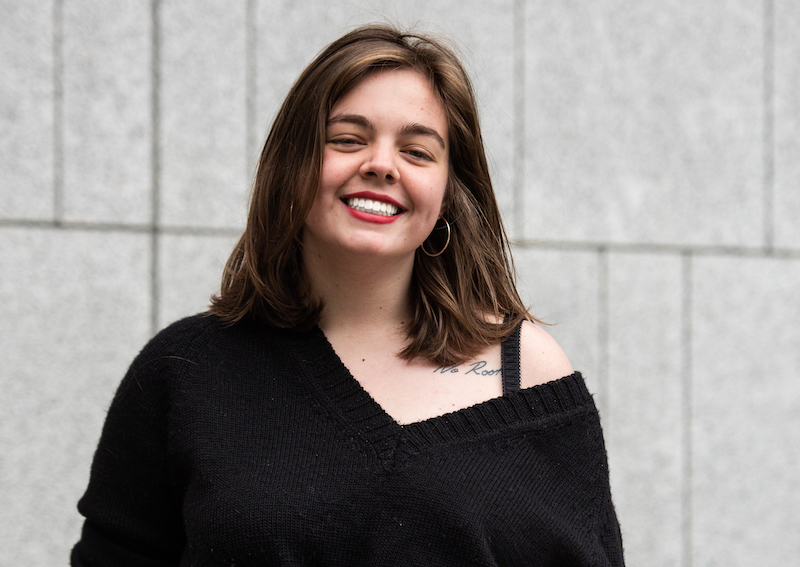Thanks to its resplendent brigade of literary alumni, Trinity has long been renowned for producing big names in Irish writing. Many of these have passed through college’s seminal arts magazine Icarus, with Michael Longley, Sebastian Barry and Eiléan Ní Chuilleanáin each previously serving as editor. Taking on the role, then, is no light task – but drama and theatre studies student and emerging poet Sophie Furlong Tighe has big plans for their time in the position.
Speaking to The University Ties, Furlong Tighe says that they aim to “publish and platform the best voices of Trinity staff, students and alumni” while maintaining the high standard of previous editions. Alongside the journal itself, they hope to run mixer events and feedback workshops to create an “accessible environment” in which writers feel comfortable to put their work forward for consideration, particularly those who haven’t been published before. They admit that hosting such events in person will be “difficult on a logistical level” given the current restrictions, but online alternatives will ensure the workshops can go ahead.
This is not to say that the pandemic has been wholly negative for literature, Furlong Tighe hastens to add, acknowledging that “every journal in Ireland and the world right now is being overrun with COVID-writing and that’s something I’m really happy with. I’m glad that people are writing in lockdown and are writing about this very unique experience of mutual isolation”. Although no edition of the magazine will be pandemic-themed, they maintain that “there’s no way it’s not going to influence the work that people are sending in” and that they’re “excited to showcase that”.
Asked about other literary and arts magazines they admire, Furlong Tighe admits there are “loads”, mentioning Banshee and Sonder as particular favourites. However, they steer away from the idea of modelling their editorship on any particular magazine’s style. Furlong Tighe emphasises that the influence of such publications is “holistic” – all the literature they read, whatever its form or origin, “influences [their] worldview and the type of work [they] like”.
When we break traditional form – that’s the most exciting that literature can get.
In a small break from tradition, Furlong Tighe will not be working alongside a second co-editor, as has been the case in previous years. As sole editor, they feel “privileged” to craft the magazine in the way that they want but acknowledge that knowing that their personal taste will shape the entire publication does carry some additional pressure. They hope that forthcoming editions will prioritise “non-traditional verse and hybrid work”, noting that they’re interested in “creative non-fiction”. Furlong Tighe also emphasises the importance of innovation in writing, saying: “When we break traditional form – that’s the most exciting that literature can get.”
A bold assertion repeated by Furlong Tighe throughout the interview is that “everything is poetry”. This mantra nicely encapsulates their sceptical stance towards established notions of form and genre. They make it plain that they care little for these arbitrary distinctions: “To me, prose and short fiction, creative non-fiction and drama are a kind of poetry. When I say the word poetry, I mean beautiful.”
However, this editor is not just engaged with lofty contemplation of literary theory but is keenly aware of the practical realities of running a university publication. They stress their commitment to the journal’s print-first format which, they say, makes “writers feel like they have a voice, that they have these words and images which are worth publishing”, but points out that it will also be available as an online PDF.
When asked about how Icarus will work towards improving the representation of marginalised voices, Furlong Tighe says they will “actively call” for historically underrepresented groups to bring their work forward. They also point out that the anonymous submissions system used by the magazine “lends itself to accessibility” as it filters out the editor’s preconceived biases.
Icarus’s first submission call of the year opens today and will remain open until November 9th.







